
Cara A. Mathews, MD, discusses 7-year overall survival data from the phase 3 SOLO-1 trial in patients with ovarian cancer.

Your AI-Trained Oncology Knowledge Connection!


Cara A. Mathews, MD, discusses 7-year overall survival data from the phase 3 SOLO-1 trial in patients with ovarian cancer.

Dimitrios Nasioudis, MD, discusses how the use of next-generation sequencing can help identify the unique molecular profile of endometroid ovarian cancer.
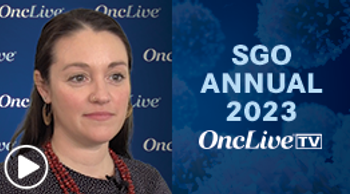
Lindsey K. Buckingham, MD, discusses an investigation into the use of patient-reported outcomes from the cancer-specific Geriatric Assessment (GA) to predict frailty in women with ovarian cancer, as well as planning the next steps for this research in other gynecologic cancers.
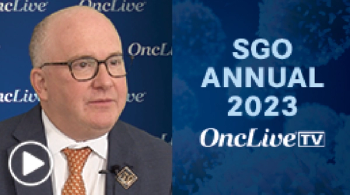
Brian M. Slomovitz, MD, discusses the evaluation of letrozole and ribociclib from the phase 2 GOG 3026 trial in recurrent low-grade serous ovarian carcinoma.

Shannon N. Westin, MD, MPH, FACOG, discusses the outcomes of the phase 1b SOLAR trial, which examined olaparib with selumetinib in patients with RAS-mutant gynecologic malignancies and other solid tumors.

Pamela T. Soliman, MD, MPH, discusses the use of circulating tumor DNA a clinical trial end point in endometrial cancer.

Neoadjuvant treatment with olaparib prior to surgical resection and adjuvant chemotherapy was well tolerated and led to a 100% optimal resection rate in patients with newly diagnosed, BRCA-mutant ovarian, primary peritoneal, or fallopian tube cancer.
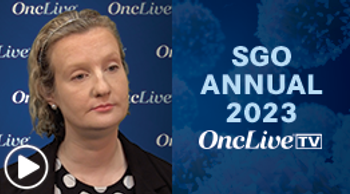
Meghan K. Berkenstock, MD, discusses the management of antibody-drug conjugate-related ocular toxicities in gynecologic cancers.

Ramez N. Eskander, MD, discusses findings from the phase 3 NRG GY018 trial of pembrolizumab plus chemotherapy in patients with endometrial cancer.

Dostarlimab plus standard-of-care chemotherapy generated a significant improvement in progression-free survival vs chemotherapy alone for patients with recurrent endometrial cancer, including those with mismatch repair–deficient, microsatellite instability–high tumors.

Pembrolizumab plus standard-of-care chemotherapy, followed by maintenance pembrolizumab, reduced the risk of disease progression or death vs chemotherapy alone in patients with mismatch repair–deficient and mismatch repair–proficient advanced or recurrent endometrial cancer.
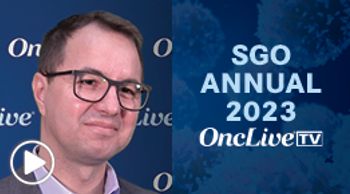
Bruno B. Bockorny, MD, discusses findings from a phase 1a/b trial with the combination of botensilimab and balstilimab in patients with recurrent platinum-refractory or platinum-resistant ovarian cancer.
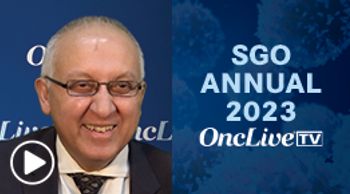
Mansoor Raza Mirza, MD, discusses findings from the phase 3 RUBY trial in patients with endometrial cancer.

Oliver Dorigo, MD, PhD, discusses the clinical efficacy of maveropepimut-S in patients with recurrent ovarian cancer.
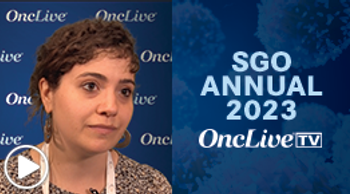
Rosa M. Polan, MD, discusses key data from a comparison of perioperative outcomes with supracervical and total hysterectomy performed with concurrent colorectal resection in women.

Botensilimab in combination with balstilimab induced durable responses in patients with resistant/refractory ovarian cancer.
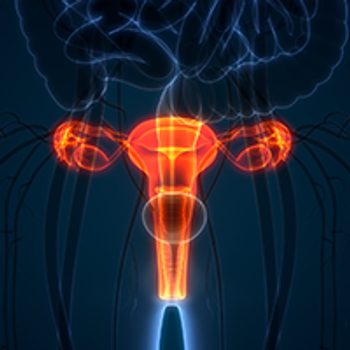
The combination of lenvatinib plus pembrolizumab produced deep, durable tumor responses in both all-comer and mismatch repair–proficient (pMRR) populations of patients with advanced endometrial cancer, according to data from the phase 3 Study 309/KEYNOTE-775 trial.

The combination of toripalimab, bevacizumab, and platinum-based chemotherapy elicited responses in patients with refractory, recurrent or metastatic cervical cancer.

Maintenance niraparib did not produce a statistically significant overall survival benefit compared with placebo in patients with recurrent ovarian cancer, according to data from an updated exploratory OS analysis of the phase 3 ENGOT-OV16/NOVA study.

Treatment with the oral, small-molecule Wee1 kinase inhibitor adavosertib was clinically active but not well tolerated in patients with recurrent or persistent uterine serous carcinoma who previously received platinum-based chemotherapy.

The combination of durvalumab, tremelimumab, and hypofractionated radiotherapy demonstrated early tolerability in patients with gynecologic malignancies and elicited objective responses in those with PD-L1–high tumors.

Robert L. Coleman, MD, FACOG, FACS, discusses an analysis of the phase 3 SORAYA trial evaluating response rates in patients with platinum-resistant ovarian cancer who received mirvetuximab soravtansine at different points in their disease course.

Ursula A. Matulonis, MD, discusses final overall survival results from the phase 3 NOVA trial in patients with ovarian cancer.
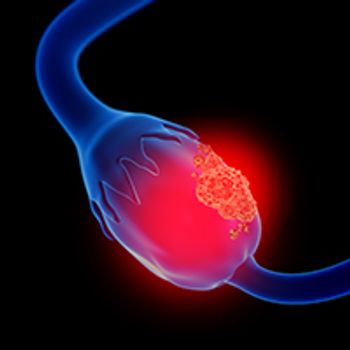
Women with ovarian cancer may be effectively assessed for frailty status via the Carolina Frailty Index Score.

The recommended phase 2 dose of olaparib plus selumetinib generated a clinical benefit in patients with endometrial or ovarian cancer harboring RAS mutations, according to findings from the dose-expansion portion of the phase 1b SOLAR trial.

The use of an individualized starting dose and dose modifications due to treatment-emergent adverse effects did not impact the efficacy of maintenance niraparib in patients with newly diagnosed ovarian cancer, irrespective of BRCA mutation status.

Neoadjuvant treatment with the combination of durvalumab plus tremelimumab and chemotherapy elicited a promising 12-month progression-free survival rate in patients with advanced-stage ovarian cancer.

The gynecological cancer lymphedema questionnaire and the lower extremity lymphedema screening questionnaire showed moderate to substantial agreement across different cutoff points.

Administration of hyperthermic intraperitoneal chemotherapy with cytoreductive surgery did not have a negative impact on health-related quality of life compared with cytoreductive surgery alone in patients with newly diagnosed ovarian cancer, according to findings from a phase 2 trial.

Jyoti Mayadev, MD, discusses the phase 1 NRG-GY017 trial evaluating atezolizumab given as an immune primer or concurrently with extended field chemoradiation in patients with locally advanced, node-positive cervical cancer.